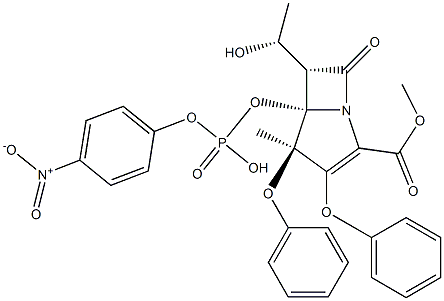- +86 2558409506
- +86 18913920737
- lide@lidepharma.com
- Language:
Your Location:Home >Produts >Research Chemicals >Proteinase K

Product Details
|
39450-01-6 Name |
|
|
Name |
Proteinase K |
|
Synonym |
ProteinaseK,PowderAndSolutionAvailable;ProteinaseK,fromTritirachiumalbumLimber;Proteinase K from Tritirachium album ca. 8 DMC-U/mg;PROTEINASEK,LYOPHILIZEDPOWDER,BIOTECHGRADE;Proteinase K for tritirachium album serine.;Protease K;Tritirachium album proteinase K;Proteinase K from Tritirachium album [EC 3.4.21.64] from Tritirachium album |
|
39450-01-6 Biological Activity |
|
|
Description |
Protease K is a nonspecific serine protease that is useful for general digestion of proteins. Protease K is active in the presence of SDS or urea and over a wide range of pH (4-12), salt concentrations, and temperatures |
|
Related Catalog |
Research Areas >> Others Signaling Pathways >> Others >> Others |
|
Target |
|
|
Storage |
Please store the product under the recommended conditions in the Certificate of Analysis. |
|
Shipping |
Room temperature |
|
SMILES |
[Protease K] |
|
References |
W Ebeling, et al. Proteinase K From Tritirachium Album Limber. Eur J Biochem . 1974 Aug 15;47(1):91-7. |
|
39450-01-6 Chemical & Physical Properties |
|
|
Density |
1.3±0.1 g/cm3 |
|
Molecular Formula |
C22H25N5O2 |
|
Molecular Weight |
391.466 |
|
Exact Mass |
391.200836 |
|
LogP |
2.50 |
|
Appearance of Characters |
Powder | White |
|
Index of Refraction |
1.648 |
|
Storage condition |
2-8°C |
|
Water Solubility |
H2O: 10 mg/mL, slightly hazy, brown-yellow | Miscible with water. |
|
39450-01-6 Description |
|
Proteinase K, an extracellular endopeptidase is synthesized by the mold, Tritirachium album Limber. Proteinase K belongs to a new subfamily of the subtilisins. It is a 277 amino acid protein and is characterized with an unhydrolyzed protein chain and autolyzed polypeptide chains. |
|
39450-01-6 Uses |
|
Proteinase K is commonly used in molecular biology to digest protein and remove contamination from preparations of nucleic acid. Addition of Proteinase K to nucleic acid preparations rapidly inactivates nucleases that might otherwise degrade the DNA or RNA during purification. It is highly suited to this application since the enzyme is active in the presence of chemicals that denature proteins, such as SDS and urea, chelating agents such as EDTA, sulfhydryl reagents, as well as trypsin or chymotrypsin inhibitors. Proteinase K is used for the destruction of proteins in cell lysates (tissue, cell culture cells) and for the release of nucleic acids, since it very effectively inactivates DNases and RNases. Some examples for applications: Proteinase K is very useful in the isolation of highly native, undamaged DNAs or RNAs, since most microbial or mammalian DNases and RNases are rapidly inactivated by the enzyme, particularly in the presence of 0.5–1% SDS. The enzyme's activity towards native proteins is stimulated by denaturants such as SDS. In contrast, when measured using peptide substrates, denaturants inhibit the enzyme. The reason for this result is that the denaturing agents unfold the protein substrates and make them more accessible to the protease. |
|
FAQs for Proteinase K |
|
1. Can I use the Proteinase K for molecular biology applications? The Proteinase K is free of exonuclease and endonuclease activity, RNase activity, and contains no detectable DNA (both bacterial and eukaryotic) contamination. Therefore, it is ideally suited for molecular biology and genomic research applications.
2. What buffer should I use to dilute the Proteinase K Lyophilized Powder? Dissolve the powder with 50% glycerin or ddH2O to 1X reaction buffer(Follow the manual). It is recommended to keep the solution at 2~8°C for 3 months. To create a stock that permits longer-term storage, Please dissolve the powder at 10~20 mg/mL and store at -20°C.
3. What is the optimal reaction condition for the Proteinase K? The Proteinase K is compatible with a wide range and the optimal pH is 7.5~8.0, optimal temperature is 50~55°C and the optimal concentration is 50~100 μg/mL.
4. Is there any Proteinase K Reagent product? Yes. We do have the Proteinase K Reagent (Cat# E-IR-R109), and the concentration is 10 mg/mL.
5. What are the different between the proteinase K Reagent and Proteinase K Lyophilized Powder? They are the same product in different character. Power is more stable for transport and storage. And the Reagent is a concentrate proteinase K at 10 mg/mL. |
CAS:874819-74-6
CAS:53-84-9
CAS:385769-84-6
CAS:1224690-84-9